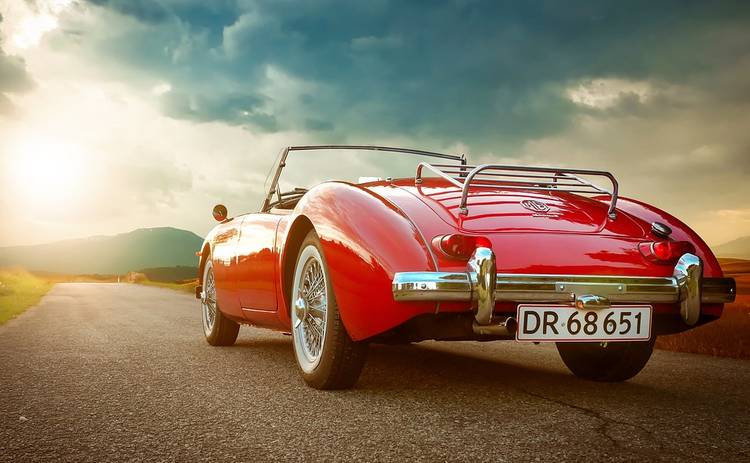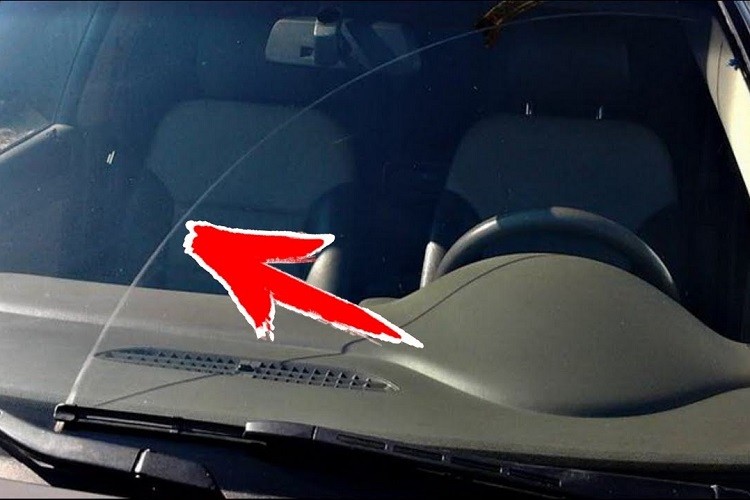
Summer do's and don'ts for your car or truck
Content
- Perform Regular Coolant Flushing
- Watch out for overheating
- Use a good sun visor on your windshield
- Leave windows slightly open to cool down
- Keep your car waxed to protect paint and clear coat
- Keep your tires properly inflated
- Check the oil level often
- Protect your dashboard with an internal protector.
- Do not leave pets in cars, even with the windows slightly open.
- Do not use the air conditioner at very high temperatures
- Don't drive with winter tires in the summer
- Don't run your car on low fuel
- Don't leave food in the car
- Don't leave plastic water bottles in your car
Waxing the paint, watching for overheating, keeping the fuel tank full, and turning off the A/C in very hot weather will help keep your car happy.
While winter is generally considered to be the heaviest season your car is exposed to, summer is no picnic either, at least not for your car. Below you will find a list of things you should and shouldn't do to your car to ensure you and your car have a safe and trouble-free summer.
Perform Regular Coolant Flushing
Modern cars are marketed as having "lifetime" coolant, which is kind of a misnomer. Although modern coolants last much longer than those of the past, their life is still limited. The problem is that coolant breaks down over time, loses its lubricating properties, raises its freezing point, and becomes more acidic. The coolant cannot be expected to last the lifetime of the vehicle, unless the vehicle's lifetime is expected to be fairly short. Some of the major automakers backed off a bit on the life fluids issue, specifying later that life fluids should be changed every 100,000 miles. Changing the coolant every 4 years or 50,000 miles is a much safer bet to ensure your engine doesn't suffer from future cooling system problems. You can order a coolant flush by a qualified specialist, for example, from AvtoTachki.
Watch out for overheating
Temperature sensors in cars have become like spare tires; completely absent in many new cars. If your car has a temperature sensor, be sure to check it from time to time while driving, especially in very hot conditions. If it doesn't have a pressure gauge and instead relies on light, be sure to stop immediately if and when you see the coolant warning light start flashing.
Use a good sun visor on your windshield
One of the most effective ways to cool your car is to use a sun visor on your windshield. They are placed inside the vehicle against the windshield and have a reflective surface facing outward to reflect the sun's rays and the associated temperature increase. They will also help protect your dashboard from harmful UV rays and heat damage.
Leave windows slightly open to cool down
When it comes to keeping the temperature of the car down while parked, opening the windows slightly is also a great way to lower the temperature by a few degrees. It's still incredibly hot inside, but every little thing helps. It also helps remove odors that may have accumulated from things left in the car.
Keep your car waxed to protect paint and clear coat
At the beginning of summer it is recommended to wash the car and apply a good coat of wax to protect the paint from the summer heat. Even if you live in dry areas, there are ways to wash your car with minimal environmental impact. Many car washes and car washes also offer a low water wash option.
Keep your tires properly inflated
Tire pressure should be maintained throughout the year, but the ideal pressure may vary slightly during the summer months. Higher temperatures of both the road surface and the air will result in higher tire temperatures, resulting in higher pressures. Check your tire pressure frequently to see what works best for you and watch for abnormal tire wear.
Check the oil level often
Checking your oil level is a must all year round, but it's especially important during the summer months when things get hotter. Modern high quality oils with different viscosities have eliminated the need for different oils in winter and summer. Although your engine is cooled by the cooling system, the oil also helps regulate engine temperature to some extent, and if the level gets low, the oil temperature can very quickly rise too high, causing it to deteriorate and thin, causing it to lose its lubricating properties. .
Protect your dashboard with an internal protector.
Ready-made interior protectors work great to provide a layer of protection for your dashboard and help prevent it from drying out and cracking. If you prefer a more natural approach, you can use a thin coat of mineral oil; just don't apply protectant to the steering wheel or shifter as they can become very slippery after application.
Do not leave pets in cars, even with the windows slightly open.
Even with the windows open on a 90-degree day, temperatures inside a car can reach 140 degrees Fahrenheit. Dogs can't sweat, they're covered in fur, and they can't open car doors to get out and cool off. Every year many pets die due to being left in the car on a hot day, so please leave them at home where they will be safe from the heat.
Do not use the air conditioner at very high temperatures
I know this seems unfair, but when driving in very hot conditions like southern California or the Arizona desert, don't use the air conditioner. The air conditioner puts extra stress on the engine and can cause the car to overheat, which can lead to a predicament.
Don't drive with winter tires in the summer
Winter tires are great for their intended purpose, that is, driving in winter. They are so good because they are made with a much softer tread that stays soft in cold weather, allowing the tire to improve traction. They also have smaller tread blocks with more sipes to disperse snow and water without hydroplaning. The same qualities that make them a very good winter tire also make them vulnerable to accelerated wear and poor handling in summer conditions. It is best if you have two sets of wheels and tires; one with winter tires and one with summer or all season tires.
Don't run your car on low fuel
Most modern cars have a fuel pump located inside the fuel tank. It relies on being surrounded by fuel to keep the pump motor cool. When the amount of fuel is very low, there is no fuel around the pump, so the pump is prone to overheating and premature failure. At high outside temperatures, this effect is enhanced and can lead to even earlier failure of the pump.
Don't leave food in the car
Considering how hot it can get inside a parked car, it's common sense not to leave food in the car. At best, it will ruin or otherwise spoil your food. In the worst case, this will cause sugary drinks to explode and melted foods to ruin your car interior, and the smell of spoiled food can linger in your cabin for a long time. If you do encounter any bad smells in your car, follow this guide to try and get rid of them.
Don't leave plastic water bottles in your car
Disposable plastic water bottles are the bane of our existence. Of the 50,000,000,000 (yes, that's 50 billion) bought every year, more than 80% end up in landfills, although they are completely recyclable. They can also be harmful to your health; if you leave them in a hot car, plastic bottles can release chemicals into the water you drink, which can cause serious health problems over time. It is better to just buy a beautiful reusable bottle and carry it with you all the time.
